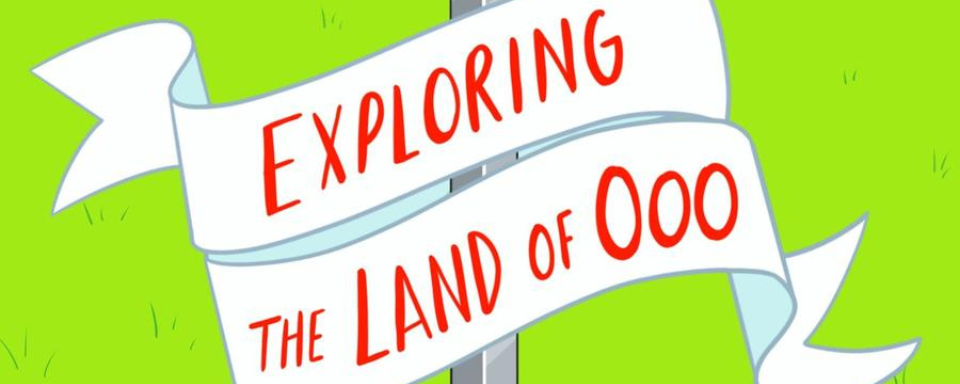
The Longevity of Ooo
Guest blogger Paul A. Thomas is author of the recently released book, Exploring the Land of Ooo: An Unofficial Overview and Production History of Cartoon Network's “Adventure Time.” As the new spin off series Adventure Time: Fionna and Cake builds critical and popular praise, Thomas reflects on the beloved story’s enduring popularity and fandom. Enjoy his insight and enter for your chance to win a free copy of his new book: https://forms.gle/wPBQGkouWGHi6e6k6.
————————————————————————————————————————————
On September 3, 2018, I sat in my living room with my wife watching the Adventure Time finale "Come Along with Me." After 45 gut-wrenching minutes, the credits started to roll, and a bit of melancholy began to settle in. This was the end. No longer could I look forward to the undertakings of Finn, Jake, Marceline, Princess Bubblegum, Ice King, and BMO. Adventure Time was dead. In retrospect, it seems that my pessimistic prognostication was premature, for less than 2 years after Adventure Time "ended," the follow-up "series" Distant Lands began streaming on HBO Max. A few years after that, the second sequel "series," Fionna & Cake, would follow on Max. It seems that the Adventure Time theme really was telling the truth! The fun will never end!
To some, Adventure Time's phoenix-like ability to spring to life out from the ashes of finality might seem positively unexceptional—after all, we do live in an age of endless reboots, remakes, and sequels. But unlike many contemporary franchises that refuse to die, Adventure Time (or, perhaps the "Adventure Time Extended Universe") has not simply limped on: It has positively thrived. Distant Lands and Fionna & Cake have both garnered positive reviews from media critics, and (judging from only discourse) both have also managed to tap into and energize Adventure Time's passionate fan following. This all engenders a burning question: What is the secret to Adventure Time's continued success?
This question was often in the back of my mind during the years I spent writing my book, Exploring the Land of Ooo: An Unofficial Overview and Production History of Cartoon Network's “Adventure Time,” and just like the many mysteries of this world, it likely has several answers. But one of the main reasons I believe the series has managed to remain so relevant is its interest in growth. Indeed, whereas other successful shows (especially cartoons) are wont to rest on their laurels once they reach a certain level of mainstream success, Adventure Time never ceased its development; instead, it embraced change as an integral part of its identity. When the series premiered, it was often described as a "lolwut" non sequitur-fest overflowing with weirdo dialogue and fart jobs a-plenty, but soon after its first few seasons, the show's tone immediately began to change. Childlike randomness slowly morphed into more nuanced considerations of deeper topics. What is more, Adventure Time managed to do this in a way that was natural, progressive, and true to itself.
And because it was so heavily predicated on organic change over time, Adventure Time—whether accidentally or not—ended up mirroring the oft-complex process that we colloquially call “growing up.” This is most obvious when we consider the development of the show’s main character, Finn the Human. Starting off as an innocent, carefree adventurer, he grows into a more complex and self-aware young adult over the course of the show, maturing before our collective eyes. He is not static like other cartoon characters—he is fundamentally dynamic—and his journey from adolescence to adulthood arguably parallels the experiences of its viewers, many of whom were either navigating the treacherous waters of adolescence when the show was airing or who clearly remembered how tumultuous this navigation had been. Put most simply, when viewers saw Finn grow up, they saw themselves grow up, too, and this, I argue, is the true source of its enduring appeal.



Comments